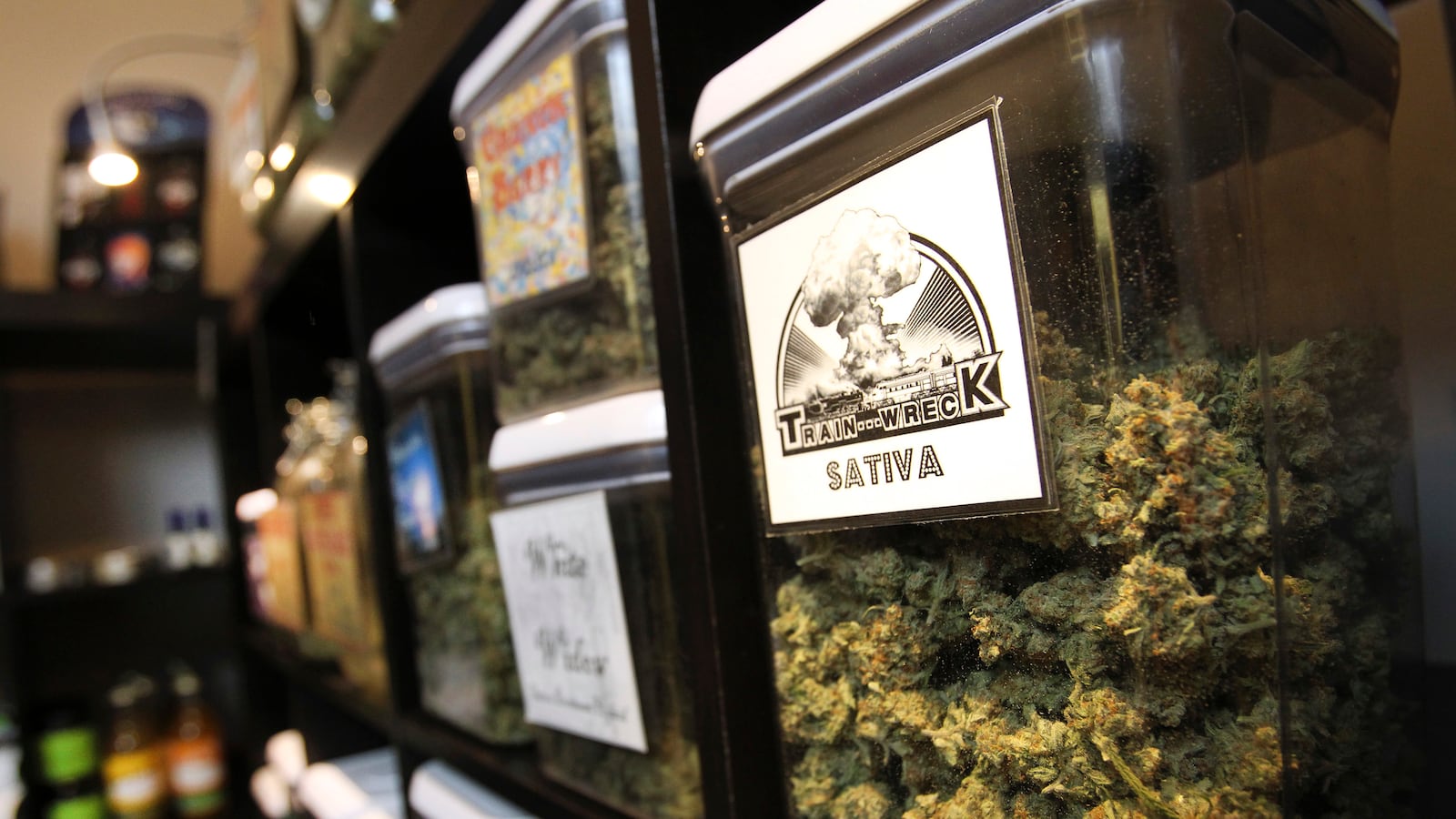As of today, you can smoke pot legally in Washington, and you don’t need permission from a doctor. At midnight this morning that state’s marijuana legalization initiative began to take effect, eliminating all state and local penalties for possession of up to an ounce by adults 21 or older. By next December, the Washington State Liquor Control Board is supposed to adopt regulations for marijuana growers and retailers.

Last month voters approved the Washington initiative and a similar one in Colorado by surprisingly healthy margins of about 10 points in both states, in contrast with a California legalization measure that lost by seven points two years ago. A recent survey (PDF) by Public Policy Polling suggests other states may be ready to follow Washington and Colorado’s example: it found that 58 percent of registered voters favor legalizing pot, the highest level of support ever recorded in a national poll. While the results of other recent surveys are less impressive, they also indicate that marijuana legalization is more popular than ever, reflecting a generational shift that politicians ignore at their peril.
The change in opinion about marijuana in some ways resembles the trend in attitudes toward gay marriage, which also scored landmark victories in last month’s elections, winning approval from voters in three states. Support for gay marriage has risen more or less steadily during the last decade or two, breaking 50 percent in 2010. Support for legalizing marijuana has followed a similar but slower course, rising from 12 percent in a 1969 Gallup poll to a record 50 percent last year. That is almost twice the level of support registered in the late 1970s, which today is remembered as a time of high pot tolerance, when marijuana use (as measured by government-sponsored surveys) peaked and the president endorsed decriminalization. While support for legalization dipped a bit during the anti-pot backlash of the Just Say No era, it began rising again in the 1990s.
In addition to the upward trends, polling on both pot and gay marriage shows clear generational differences. A CBS News poll conducted a few weeks ago found that 72 percent of 18-to-29-year-olds supported gay marriage, compared to 53 percent of 30-to-44-year-olds, 44 percent of 45-to-64-year-olds, and 33 percent of respondents who were 65 or older. Support for legalizing marijuana, which was 47 percent overall (another record), was 54 percent, 53 percent, 46 percent, and 30 percent, respectively, in those four age groups.
While these patterns could be read to mean that people become more conservative on these issues as they become older, the upward trends in overall support show something else is going on: Familiarity is breeding tolerance.
Just as an individual’s attitude toward gay people depends to a large extent on how many he knows (or, more to the point, realizes he knows), his attitude toward pot smokers (in particular, his opinion about whether they should be treated like criminals) is apt to be influenced by his firsthand experience with them.
It is therefore not surprising that generational differences in opinions about marijuana legalization reflect generational differences in marijuana use. According to the 2011 National Survey on Drug Use and Health, most Americans between the ages of 12 and 60 have tried marijuana, while most Americans in their 60s or older have not. The highest rates of lifetime use (around 57 percent) are among people currently in their late 20s, late 40s, and early 50s, while recent use is most common among Americans of college age, about a third of whom admitted smoking pot in the previous year. People 65 and older have the lowest rates of lifetime and past-year use (12 percent and 1 percent, respectively). People younger than that, even if they have never smoked pot, probably know people who have, and that kind of personal experience provides an important reality check on the government’s anti-pot propaganda.
As with gay marriage, attitudes toward marijuana are also strongly associated with party affiliation, reflecting the plant’s persistent countercultural connotations. In the Public Policy Polling survey, which was commissioned by the Marijuana Policy Project and conducted from Nov. 30 through Dec. 2, Republicans were much more likely than Democrats to oppose marijuana legalization (56 percent vs. 28 percent), to say marijuana is not safer than alcohol (58 percent vs. 29 percent), and to favor federal interference with state legalization (46 percent vs. 26 percent). Those numbers suggest at least some Republicans put federalism ahead of their anti-pot prejudices, although not as many as a consistent constitutionalist would like. The same poll suggests that Democrats overwhelmingly favor states’ rights (by a factor of more than two to one) on this one issue where they happen to like the policy outcome. Republicans look more principled in the CBS News poll, where 65 percent of them said states should determine whether marijuana is legal within their borders, compared to 55 percent of Democrats, even though Democrats were more likely to say pot should be legal (51 percent vs. 27 percent).
In both of these surveys, nearly three-fifths of respondents said states should be free to chart their own courses on marijuana policy—a message the Obama administration may want to consider as it settles on a response to the groundbreaking legalization measures in Washington and Colorado. Politicians dedicated to maintaining the drug policy status quo are looking increasingly out of step with voters. Although large majorities have for years told pollsters that patients should have access to marijuana and that pot smokers should not be arrested, President Obama has intensified his predecessor’s crackdown on medical marijuana (after promising the opposite), and police across the country continue to bust hundreds of thousands of people for simple possession every year.
Last year Reps. Barney Frank (D-Mass.) and Ron Paul (R-Texas) introduced a bill that would have accomplished what most Americans seem to want, repealing the federal ban on marijuana and letting states decide for themselves how to treat the drug. The Ending Federal Marijuana Prohibition Act of 2011 attracted 19 co-sponsors, all but one Democrats, and never made it out of committee. Last month Rep. Diana DeGette (D-Colo.) proposed a more modest bill, merely clarifying that the Controlled Substances Act does not require states to ban marijuana. The Respect States’ and Citizens’ Rights Act of 2012 has 10 co-sponsors, with Paul the only Republican. Shouldn’t a policy supported by nearly 60 percent of the public generate a little more enthusiasm in Congress?






